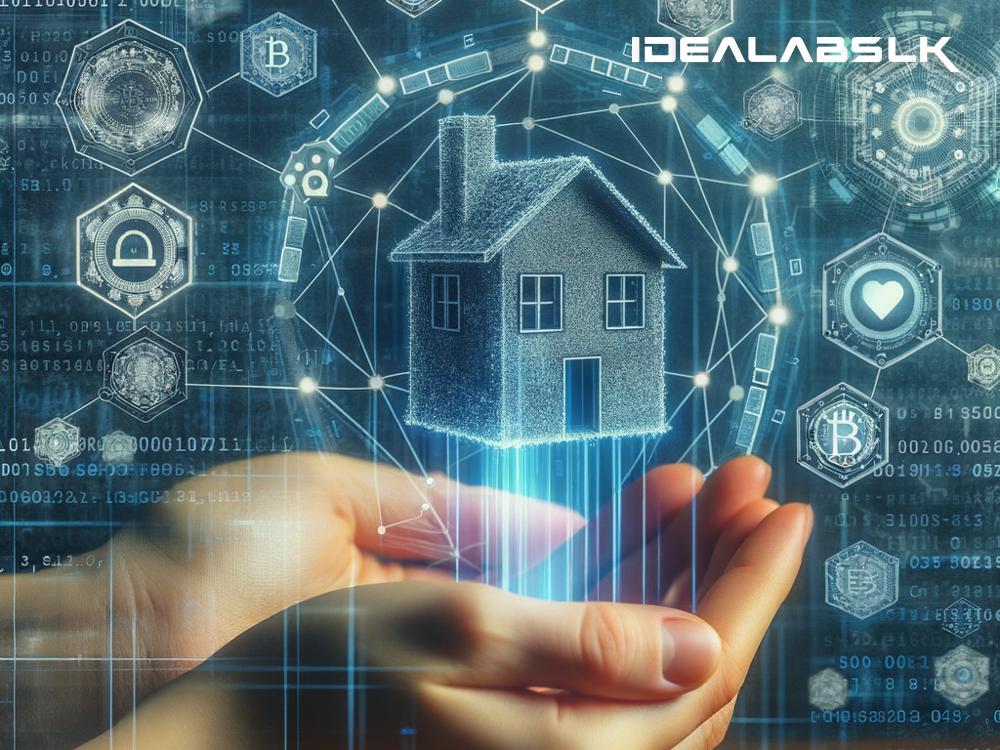Blockchain for Real Estate: How Smart Contracts Slash Transaction Costs
The real estate sector, traditionally seen as a high-value but complex market, is on the brink of a revolutionary change, thanks to blockchain technology. One of the most exciting applications of blockchain in real estate is the use of smart contracts to automate transactions - a move that promises to dramatically reduce costs, increase speed, and improve transparency. In simple terms, it’s like upgrading from a horse-drawn carriage to a high-speed train in the way property transactions are processed.
What is Blockchain?
At its core, blockchain is a type of database technology where data is stored in blocks that are chained together. Once a block of data is recorded, it's extremely difficult to change. This makes it perfect for recording transactions because it provides a tamper-proof, transparent, and secure environment. Imagine a ledger that is not just in one place like a bank or a lawyer’s office but is spread out across many computers around the world, making it almost impossible to hack or cheat.
How does it relate to Real Estate?
Real estate transactions, from buying and selling to leasing, involve a lot of paperwork, middlemen, and, unfortunately, a significant amount of time and money. Banks, lawyers, and real estate agents, all play their parts in verifying, approving, and facilitating transactions. Each step adds layers of costs and delays.
Enter blockchain. By using blockchain technology, particularly smart contracts, many of these steps can be automated, reducing or even eliminating the need for some of the middlemen, which in turn reduces costs and speeds up the transactions.
What are Smart Contracts?
A smart contract is a self-executing contract with the terms of the agreement directly written into lines of code. The beauty of smart contracts lies in their ability to automate and enforce the terms of an agreement without human intervention. Once predefined conditions are met, the smart contract automatically executes the agreed actions - for example, transferring ownership of a property.
The Impacts on Transaction Costs
The automation provided by smart contracts in real estate transactions can significantly reduce costs in several ways:
-
Reduced Need for Intermediaries: The direct transfer of property between buyer and seller without the need for all the traditional middlemen slashes significant fees from the process.
-
Faster Transactions: Automation means that as soon as the conditions are met, the transaction proceeds without waiting for manual processing. This speed can cut down on costs related to transaction delays.
-
Minimized Errors and Fraud: Smart contracts are precise and operate based on the code. It minimizes the risk of errors that can occur in manual handling and significantly reduces the potential for fraud.
-
Streamlining Paperwork: Since data about the transaction is recorded on the blockchain, there's less need for traditional paperwork, and documents are easily verifiable, reducing administrative costs.
Real-World Examples
Several startups and established companies are exploring how blockchain can transform the real estate sector. For instance, companies are experimenting with listing properties on blockchain platforms, enabling them to sell shares of properties, not just whole properties - making real estate investment more accessible. Some governments are even considering recording land titles on blockchain to ensure their permanent, transparent, and secure record-keeping.
Challenges Ahead
Despite its potential, the use of blockchain and smart contracts in real estate is not without challenges. Regulatory acceptance is still in infancy stages, with governments around the world cautiously evaluating how best to integrate this technology within their legal frameworks. There's also the hurdle of achieving widespread understanding and trust in blockchain.
Looking Forward
The future looks promising for blockchain in real estate. As technology evolves and becomes more widely accepted, we can expect a more efficient, transparent, and cost-effective real estate market. The transition won’t happen overnight, but the wheels are in motion for a significant transformation that could make real estate transactions smoother for everyone involved.
In essence, blockchain and smart contracts are not just buzzwords; they represent a leap forward in how we handle property transactions. By reducing transaction costs and streamlining processes, this technology stands to benefit buyers, sellers, and the industry as a whole. So, next time you hear about blockchain in real estate, think of it as the new architect of property transactions, constructing a faster, cheaper, and more transparent market.

